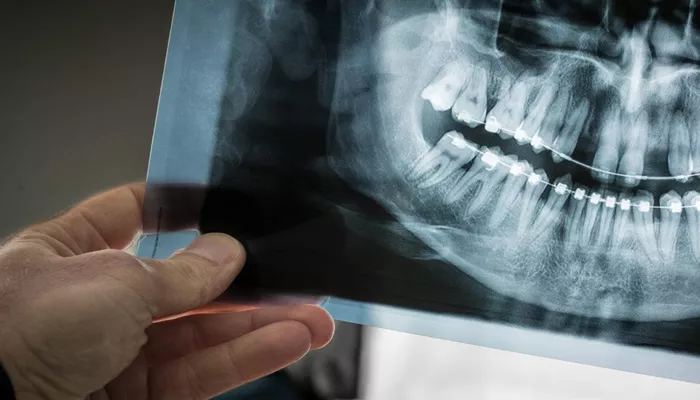As a dental professional, I understand the importance of maintaining the results of orthodontic treatment. After investing time and effort into straightening your teeth, the last thing you want is for them to shift back to their original positions.
This phenomenon, known as orthodontic relapse, can be frustrating and disheartening. However, there are several strategies you can employ to prevent relapse and enjoy a beautiful, healthy smile for years to come. In this article, we will explore the causes of relapse, the importance of retainers, and other techniques to maintain your orthodontic results.
Understanding Orthodontic Relapse
Orthodontic relapse occurs when teeth gradually move back to their pre-treatment positions after the completion of active orthodontic treatment. This can happen due to various factors, including:
Continued growth and development of the jaws: Even after treatment, the jaws may continue to grow and change shape, which can influence the position of the teeth.
Muscle memory: The muscles and tissues surrounding the teeth may have become accustomed to the teeth’s original positions, making it easier for them to shift back.
Lack of compliance with retainer wear: Failing to wear your retainers as directed by your orthodontist can lead to relapse.
Gum and bone changes: Changes in the gum and bone tissues that support the teeth can contribute to relapse.
Habits: Certain habits, such as thumb sucking or tongue thrusting, can put pressure on the teeth and cause them to shift.
see also: What Is Orthodontic Headgear Used For?
The Importance of Retainers
Retainers are the key to preventing orthodontic relapse. They are custom-made appliances that hold the teeth in their new positions while the surrounding tissues adapt to the changes. There are several types of retainers, including:
Hawley retainers: These removable retainers consist of a metal wire that fits around the front of the teeth and is attached to an acrylic base that fits against the roof of the mouth or the inside of the lower teeth.
Clear plastic retainers: Also known as Essix retainers, these are made from a thin, clear plastic material that fits snugly over the teeth. They are virtually invisible and are a popular choice for those who want a discreet retainer.
Fixed or bonded retainers: These are made from a thin wire that is bonded to the back of the teeth. Fixed retainers are not removable and are often used on the lower front teeth to prevent them from shifting back.
Your orthodontist will recommend the type of retainer that best suits your needs and will provide specific instructions on how long you should wear it. In most cases, you will be required to wear your retainers full-time for several months after your braces are removed, followed by nighttime wear for an extended period, often for the rest of your life.
How To Prevent Orthodontic Relapse
1. Caring for Your Retainers
Proper care of your retainers is essential to ensure their longevity and effectiveness. Here are some tips for caring for your retainers:
Clean your retainers regularly: Use a soft-bristled toothbrush and mild soap or denture cleaner to keep your retainers clean and free of bacteria.
Store your retainers properly: When not in use, keep your retainers in a safe place, such as a retainer case. Avoid leaving them out in the open or wrapping them in a napkin, as they can easily be lost or damaged.
Handle your retainers with care: Be gentle when inserting and removing your retainers to prevent them from bending or breaking.
Avoid exposing your retainers to heat: Heat can cause your retainers to warp or become misshapen, affecting their fit and effectiveness.
Attend regular check-ups: Visit your orthodontist as recommended to ensure that your retainers are still fitting properly and that your teeth are maintaining their alignment.
2. Other Strategies for Preventing Relapse
While retainers are the primary tool for preventing orthodontic relapse, there are other strategies you can employ to support the long-term stability of your results:
Maintain good oral hygiene: Brush and floss regularly to keep your teeth and gums healthy. Poor oral hygiene can lead to gum disease, which can contribute to tooth movement.
Avoid harmful habits: Habits such as nail biting, pen chewing, and teeth grinding can put pressure on your teeth and cause them to shift. If you have a habit that is difficult to break, consider using a mouthguard to protect your teeth.
Maintain a balanced diet: A diet rich in vitamins and minerals can support the health of your teeth and gums, which is important for maintaining the results of your orthodontic treatment.
Manage any medical conditions: Certain medical conditions, such as diabetes and arthritis, can affect the health of your teeth and gums. If you have a medical condition, work with your healthcare provider to manage it effectively.
Consider bonded retainers: For some patients, bonded retainers may be a good option for preventing relapse. These retainers are made from a thin wire that is bonded to the back of the teeth and are not removable.
The Consequences of Relapse
Failing to prevent orthodontic relapse can have several consequences, including:
The need for additional treatment: If your teeth shift significantly, you may need to undergo additional orthodontic treatment to correct the problem.
Increased dental costs: Additional treatment can be costly and may not be covered by your dental insurance.
Decreased self-confidence: Relapse can be frustrating and can negatively impact your self-confidence and self-esteem.
Increased risk of dental problems: Shifting teeth can lead to problems such as tooth decay, gum disease, and TMJ disorders.
Conclusion
Preventing orthodontic relapse is essential for maintaining the results of your treatment and enjoying a healthy, beautiful smile for years to come. By wearing your retainers as directed, caring for them properly, and employing other strategies such as maintaining good oral hygiene and avoiding harmful habits, you can reduce the risk of relapse and enjoy the benefits of your orthodontic treatment for a lifetime.

